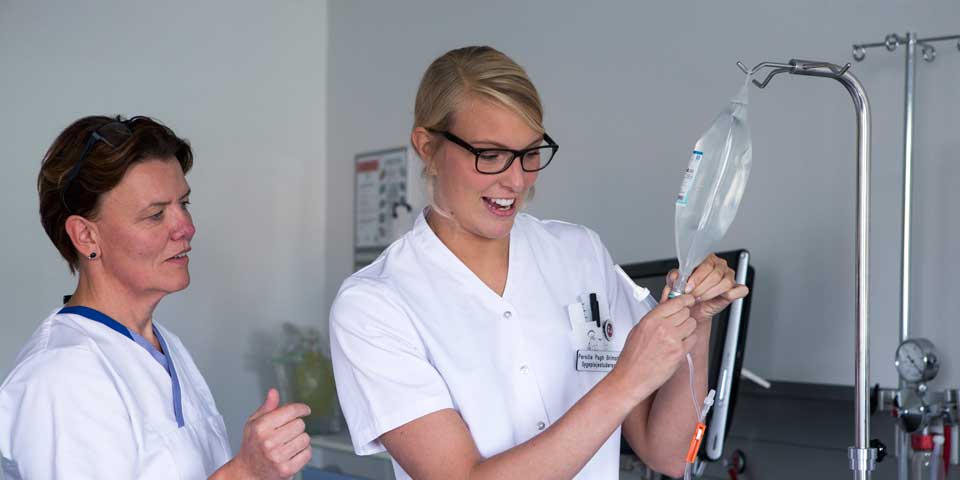What is the Danish healthcare system?
Overall, the Danish healthcare system is tax-funded, of high quality, and all residents are entitled to free or subsidised healthcare services, including international students.
The system is characterised by its emphasis on preventive care, patient-centred care, and collaboration between healthcare providers.
The Danish healthcare system is organised into three levels of care:
- Primary care: Primary care is provided by general practitioners (GPs), who serve as the first point of contact for patients seeking medical care. GPs provide preventive care, diagnosis, treatment, and referral to specialists when necessary.
- Secondary care: Secondary care is provided by hospitals and specialised clinics, and includes more advanced diagnostic and treatment services such as surgery, radiology, and specialist consultations.
- Tertiary care: Tertiary care is provided by highly specialised hospitals and centres that offer advanced treatments for complex medical conditions.
Note that although treatment and services such as ambulance services are generally free of charge, dental care if you are over the age of 21 and prescription medicine are not. It is possible to purchase a private health insurance to cover some of the cost for this and some dentists offer student discounts. Learn more about insurance in Denmark here!

How do I gain access to the Danish healthcare system?
In order to gain access to the Danish healthcare system, you need a CPR number (social security number). Learn more about how to get a CPR number here. Once you have your CPR number, you can choose which GP you want. It is a good idea to find someone located near your home. Also, make sure that he/she speaks English or has an interpreter available. If you for some reason are not happy with your initial choice you can always choose a new one at sundhed.dk (in Danish).
What do I do if I have a medical emergency?
In case of a serious, life threatening medical emergency, you should call emergency services at 112 immediately. The operator will guide you to the emergency service you need whether it being police, ambulance services or the fire department. For minor injuries call your general practitioner.
If you need medical assistance outside of your GP’s opening hours or on weekends and holidays, you can call the regional emergency doctor on-call.
Find contact information for the emergency doctor in the Central Denmark region and information on what to do in a medical emergency here!
Learn more about how the Danish healthcare system works on the official government website for new citizens in Denmark!